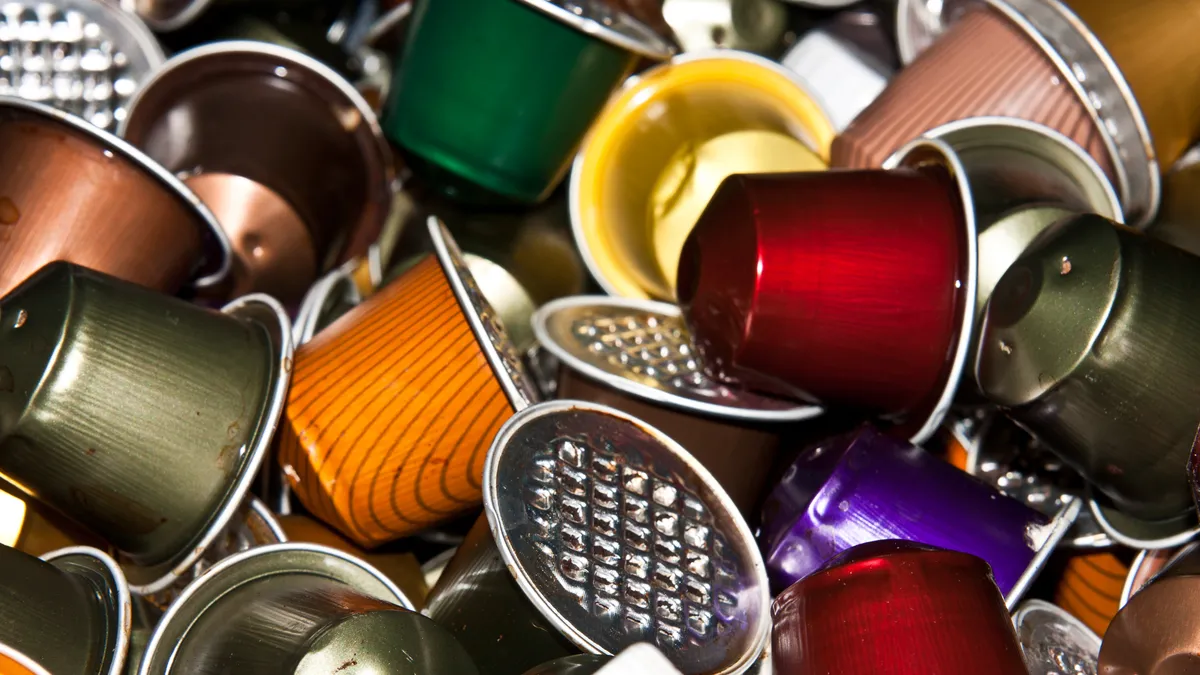Dive Brief:
- Nespresso recently announced a new six-month curbside collection pilot for its single-use aluminum coffee pods in the U.K. following calls for the company to offer more recycling options, as reported by The Guardian.
- About 190,000 residents in two London boroughs can now set the pods out in special purple bags. The bags will collected with other refuse and recycling by Suez for separate processing, as reported by CIWM.
- The bags will go to a Nespresso recycling facility in the town of Congleton. Any remaining coffee grounds will be pulled out for composting and the aluminum pods will be recycled.
Dive Insight:
Parent company Nestlé has helped make these pods ubiquitous over the past 30 years and many other companies now offer their own versions that can be harder to recycle because of the multiple materials used to make them. Similar curbside collection systems in Germany, France and Canada currently accept the Nespresso pods, but this will be a first for the U.K. Residents already had access to the company's mail-in recycling program, which has also expanded throughout the U.S. in recent years.
For many waste professionals and environmental advocates these efforts still don't address the core problem of the disposable behavior encouraged by the pods in the first place. Last year, this pressure led Keurig, another major coffee brand, to promise all of its pods would be recyclable by 2020. New compostable versions have also been introduced by some companies, but in cities such as Toronto none of these options have been satisfactory to local waste management officials.
Though coffee pods may account for a relatively small part of the overall waste stream they're part of an ongoing conversation about how much responsibility manufacturers should bear for making their packaging more recyclable. Some view it as a market-driven issue that will work out over time. Others want to take a more regulatory approach on items such as plastic bags, polystyrene foam and even bottled water. Many solutions are in the works, though similar pilots such as the orange Energy Bag program for hard-to-recycle plastics shows that some companies may find providing collection options easier than changing the packaging itself.












